SCIENCE DOMAIN
Megan Iskov
Science Instructional Leader
Our Science program is designed to foster an interest in science and a curiosity in the wider world. You will undertake study of the structure and behaviour of the physical, social, and natural worlds through observation and experimentation.
In the Middle School (Years 7 & 8) you will have the opportunity to develop ideas about science that relates to your life and living. Developing skills in observation, prediction, data recording and critical thinking.
During the Pathways (Years 9 & 10), students study science concepts associated with each of the disciplines: biology, physics, chemistry and earth science in self-selected and specific subjects, allowing further exploration of topics of interest.
The VCE program offers units in Physics, Chemistry, Biology, Psychology and Environmental Science. These courses recognise the sequential nature of knowledge in the field and enable the development of depth of understanding of key concepts, processes and contexts.
Biology 3-4
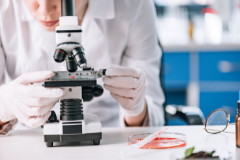
- Investigate how biochemical processes support life
- Learn how the body responds to pathogens and develops immunity
- Analyse evidence and data that supports the theory of evolution
Subject Code: V2SBI
Year Level: 12
Unit 3: How do cells maintain life?
- What is the role of nucleic acids and proteins in maintaining life?
- How are biochemical pathways regulated?
- How do cells communicate?
You will investigate the intricate workings of the cell from several perspectives. You will explore the relationship between nucleic acids and proteins as key molecules in cellular processes. You will explore the processes of photosynthesis and cellular respiration and apply your knowledge of cellular functions through investigation of a selected case study related to gene technologies, structure of DNA; proteomic research applications or transgenic organisms
Unit 4: How does life change and respond to challenges?
- How do organisms respond to pathogens?
- How are species related over time?
You will examine pathogens and how they elicit an immune response in the human body. You will explore the nature of immunity and the role of vaccinations in providing it. Technological advances and the manner in which they assist in managing immune system disorders is also covered in detail. You will also investigate how life on earth has changed over time by examining the structural trends in the human fossil record and the interrelationships between human biological and cultural evolution.
Assessment
- Course work
- Topic tests
- SACs
- Practical investigations
- Extended practical investigation
- End of semester exam
What sort of student would like Biology?
Someone who:
- Has an interest in the workings of the human body
- Is curious about the role biochemistry plays in the functioning and survival of living organisms
- Wants a better understanding of where life came from and why it shall certainly change in the future
- Is interested in studying health and/or medical sciences or any other aspect of the natural world.
Pre-requisites
Biology Unit 1 and 2 and or Chemistry Unit 1 and 2.
Chemistry 3-4
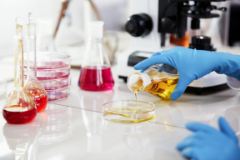
- Compare fossil fuels and renewable energy sources
- Investigate the influence of carbon in our everyday life
- Analyse food and explore the chemical properties of other organic compounds
Subject Code: V2SCH
Year Level: 12
Unit 3: How can chemical processes be designed to optimize efficiency?
- What are the options for energy production?
- How can the yield of a chemical product be optimised?
In Unit 3 Chemistry you will compare and evaluate different chemical energy resources, including fossil fuels, biofuels, galvanic cells and fuel cells and will investigate the combustion of hydrocarbons.
You will analyse manufacturing processes and investigate how new materials are developed and refined. You will use the language and conventions of chemistry including symbols, units, chemical formulas and equations to represent and explain observations and data collected from experiments.
Unit 4: How are organic compounds categorised, analysed and used?
- How can the diversity of carbon compounds be explained and categorised?
- What is the chemistry of food?
In Unit 4 Chemistry you will study the ways in which organic structures are represented and named. You will process data from instrumental analyses of organic compounds to confirm or deduce organic structures and perform volumetric analyses to determine the concentrations of organic chemicals in mixtures. We will investigate key food molecules through an exploration of their chemical structures, the reactions in which they are broken down and those in which they are rebuilt. In this context, the role of enzymes and coenzymes in facilitating chemical reactions is explored. You will use calorimetry as an investigative tool to determine the energy released in the combustion of foods.
Assessment
- SACs
- Extended practical investigation
- End of year external exam
What sort of student would like Chemistry?
Someone who:
- Has an interest in science
- Wishes to find out more about how chemistry affects the way we live, the food we eat and the energy sources we use
- Wishes to develop their knowledge in how human activities influence and effect the environment.
Pre-requisites
Chemistry Unit 1 and 2.
Environmental Science 3-4
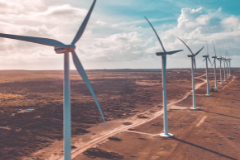
- Analyse strategies designed to protect and conserve life on earth
- Collect data during field trips to analyse changes in local ecosystems
- Delve deeply into the issue of climate change
Subject Code: V2SEN
Year Level: 12
Unit 3: How can biodiversity and development be sustained?
- Why is maintaining biodiversity worth a sustained effort?
- What protection and restoration measures are available to preserve biodiversity?
- When is development sustainable?
You will focus on techniques and methods of environmental management. You will analyse the threats to biodiversity and evaluate management strategies to maintain biodiversity. Our class takes into consideration a wide variety of perspectives and considers how different viewpoints on issues can influence environmental decision-making.
Unit 4: How can climate change and the impacts of human energy uses be managed?
- How can we respond to climate change?
- What might be a more sustainable mix of energy sources?
- How is scientific inquiry used to investigate contemporary environmental challenges?
You will explore different factors that contribute to the variability of Earth’s climate at local, regional and global scales. You will compare renewable and non-renewable energy resources and evaluate the suitability and consequences of their use.
The unit culminates in a student-designed scientific investigation related to biodiversity, environmental management and/or climate change. This investigation may be undertaken in the laboratory and/or in the field. It will be inspired by a contemporary environmental science challenge or issue. You wil utilise a range of scientific and field work skills to collect data, evaluate information and draw conclusions.
Assessment
- Written response to a chosen environmental issue or challenge
- Analysis and evaluation of a case study (local, regional or global)
- Evaluation of a response to an environmental scenario.
- Scientific report of student-designed and conducted scientific investigation.
- External exam
Practical work
Practical work is a central component and may include laboratory experiments, fieldwork, simulations, modelling and other direct experiences.
Pre-requisites
Environmental Science Unit 1 and 2 and or Biology Unit 1 and 2.
Physics 3-4
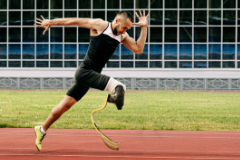
- Investigate and enquire scientifically
- Analyse and apply physics understanding
- Communicate physics information and understanding
Subject Code: V2SPH
Year Level: 12
Unit 3: How do fields explain motion and electricity?
- How do things move without contact?
- How are fields used to move electrical energy?
- How fast can things go?
You will explore the importance of energy in explaining and describing the physical world. We will examine the production of electricity and its delivery to homes; and the interactions, effects and applications of gravitational, electric and magnetic fields.
Newton’s laws, along with a number of other conceptual tools, are studied in depth and used to investigate motion in one and two dimensions and you will be introduced to Einstein’s theory of Special Relativity to explain the motion of very fast objects.
Unit 4: How can two contradictory models explain both light and matter?
- How can waves explain the behaviour of light?
- How are light and matter similar?
- Practical investigation
You will explore the use of various theories to model the properties of light and matter. You will examine how the concept of the wave is used to explain the nature of light and explore its limitations in describing light behaviour and further investigate light by returning to the particle model to explain newly discovered behaviours.
A wave model is also used to explain the behaviour of matter which will enable you to consider the relationship between light and matter. You will learn to think beyond the concepts experienced in everyday life to study the physical world from a new perspective.
Assessment
- Course work
- Extended practical investigation
- Summary report of selected practical work
- Data analysis
- Learning Journal
- Unit tests
- End of year exam
What sort of student would like Physics?
Someone who:
- Enjoys understanding theories and applying these to different situations
- Has an interest in understanding how things work, from the creation of rainbows and how the eye works to the electricity that is provided to our homes
- Wishes to understand the very nature of all matter of the universe
- Enjoys using Maths to solve real life problems.
Pre-requisites
Physics Unit 1 and 2. Please note that the VCAA end of year exam assumes knowledge of Units 1 and 2 Physics.
Psychology 3-4
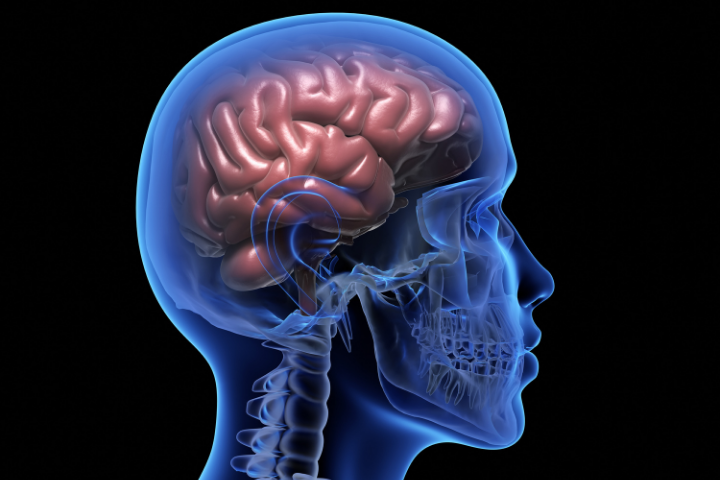
- Investigate how memory, consciousness and behaviour are influenced by external stimuli
- Design psychological experiments that enhance understanding of current theories
- Develop an understanding of the mechanisms of learning and cognitive processes
Subject Code: V2SPS
Year Level: 12
Unit 3: The conscious self
You will be investigating how the human nervous system enables a person to interact with the world, including our fight or flight response. You will also evaluate the different ways in which stress can affect functioning and learn ways to re-evaluate stressors. Learning and memory are two very essential parts of a VCE student’s life, and this unit will spend time exploring how both of these occur. You will discover the range of ways in which people learn, and explore techniques used to improve memory and retrieval.
Unit 4: Brain, behaviour and experience
How do we measure consciousness? In this unit you will be able to describe the demands for sleep at various stages of life and evaluate the effects of sleep disruption on a person’s psychological functioning. You’ll discuss the concept of mental wellbeing, and use scientifically backed concepts to evaluate and suggest improvements in the wellbeing of others. You will be able to apply a biopsychosocial approach to explain the development and management of specific phobia, and discuss protective factors that contribute to the maintenance of mental wellbeing. Finally, you will design and conduct a scientific investigation related to our Psychology units, and present an aim, methodology and method, results, discussion and conclusion in a scientific poster.
Assessment
- Course work
- Topic tests
- End of year exam
What sort of student would like Psychology?
Someone who is interested in:
- Human behaviour, the way we think, learn, and relate and how we become the ‘person’ we are
- Studying areas of health, health science, or health promotion
- Using scientific method to establish what we know about human behaviour.
Pre-requisites
Psychology Unit 1 and 2 are suggested for Unit 3 and 4.
